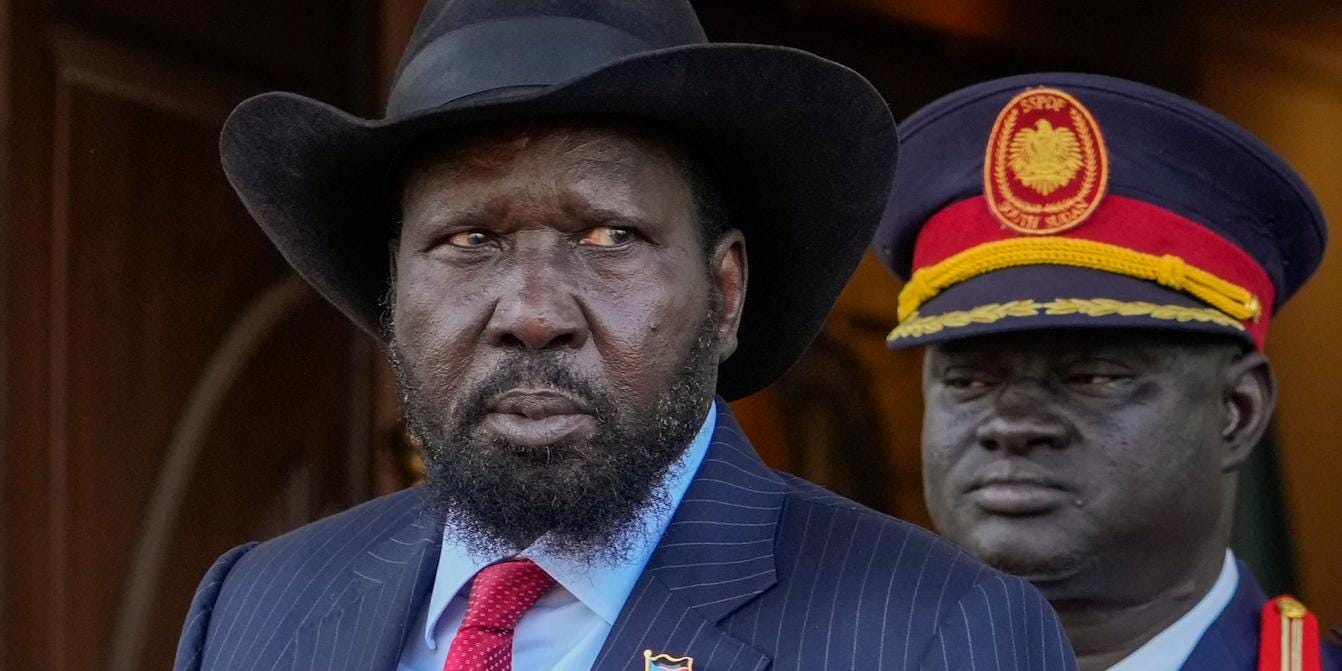Democracy Delayed is Democracy Denied
Max Bell School Alumna Rebecca Kresta (MPP ‘24) returns to The Bell to follow up on elections in South Sudan.

By Rebecca Kresta
South Sudan was one of 64 countries scheduled to go to the polls in 2024. While it has been an independent nation for nearly 14 years, the promise of democracy has once again been postponed. As Canada prepares for a federal election, we are reminded of what a privilege it is to vote.
South Sudan gained independence from Sudan in 2011. Their first ever elections were scheduled for 2015, but these were pushed to 2022 because of the civil war. Due to delays in implementing the peace agreement, the elections were again pushed to December 2024. In January 2024, the potential for elections brought an increased risk of violence. Despite that, if elections could have been held, even imperfectly, it would represent a meaningful step forward for the country. In September 2024, because of the lack of a national census and national constitution, the election was postponed again, this time to 2026.
While this decision was not a surprise, many countries, including Canada, expressed their disappointment. The UN Special Representative to South Sudan told the Security Council in February 2025 that unless the timeline for conducting a census and writing a constitution is accelerated the election will be postponed again.
In early March, a UN helicopter was attacked in Nasir, a town in the northwest of South Sudan, killing 28 people. The President blamed the opposition party for the attack, leading to the arrest of Vice President Riek Machar on March 27th. Amid violence and widespread concern from the international community, the opposition party declared that the peace deal had collapsed. It is not clear whether the opposition party instigated the attack or whether Vice President Machar is still under house arrest. What is clear is that South Sudan is closer to another civil war than holding elections.
South Sudan is just one example of many countries where the population does not have the privilege of choosing its leadership. The portion of countries that score above 50 per cent on the Economist Intelligence Unit’s Democracy Index has decreased from 61 per cent to 54 per cent over the past 20 years. To give a sense of scale, in 2024 Canada scored 87 per cent, and China 21 per cent. As a federal election looms in Canada, we should consider what a privilege it is to live in a place where we can vote and have confidence that our vote will be counted with the same weight as every other. This also presents an opportunity to consider how many people do not exercise their right to vote.
Over the past 40 years, voter turnout in Canadian federal elections has dropped from 75 per cent in 1984 to 63 per cent in 2021.

This is on par with our neighbours to the south (63.7 per cent in the last US elections) and is marginally better than the turnout at the most recent elections in the UK (60 per cent). This reflects an overall downward trend in voter turnout internationally. The global average has dropped from approximately 75 per cent in the 1980s to 65 per cent in 2015.

There are myriad reasons why voter turnout has decreased, but according to recent research, the primary factor is a generational shift. People born into an affluent society are less likely to see voting as a civic duty. This shift, of voters who grew up in economically privileged circumstances replacing older generations, accounts for up to 56 per cent of the decrease in voter turnout. Voter participation is critical to the health of a democracy. As the number of democracies decreases globally, the privilege of living in a democracy, one that people in South Sudan have been waiting for nearly 15 years, becomes more precious.
Readers of a blog about public policy are likely to make the time to vote. But this election, go one step further: In addition to voting, facilitate someone else’s participation. This could mean taking someone with limited mobility with you to vote. Or having a conversation with a friend about who isn’t sure who to vote for about what platform points they might care about. With so much at stake, this election is also an opportunity to reverse the decline in voter turnout and defend democracy.
Rebecca Kresta (she/her) has over 10 years of experience in the energy, medical, water and sanitation, aviation and extractive industries. She has led large multicultural teams to deliver impactful projects including the construction of a 26 building hospital in a remote community of South Sudan. Through her experiences, she has seen the importance of infrastructure, supply chains, and governance to build strong communities and economies.



